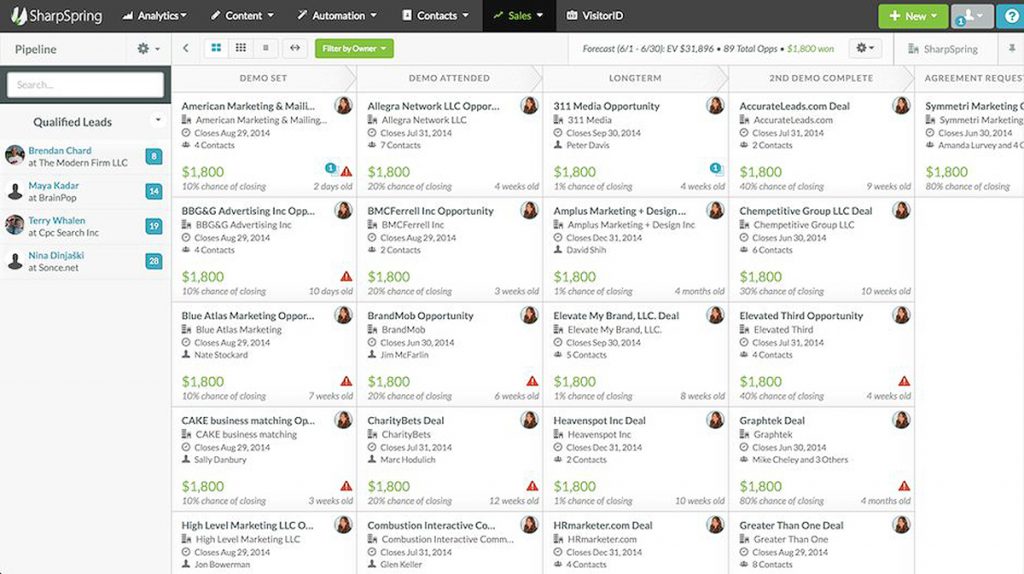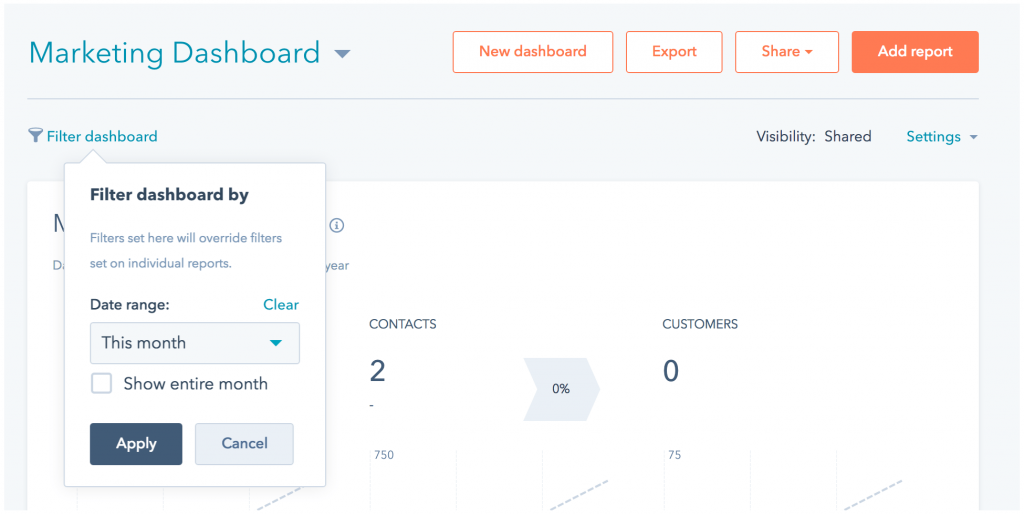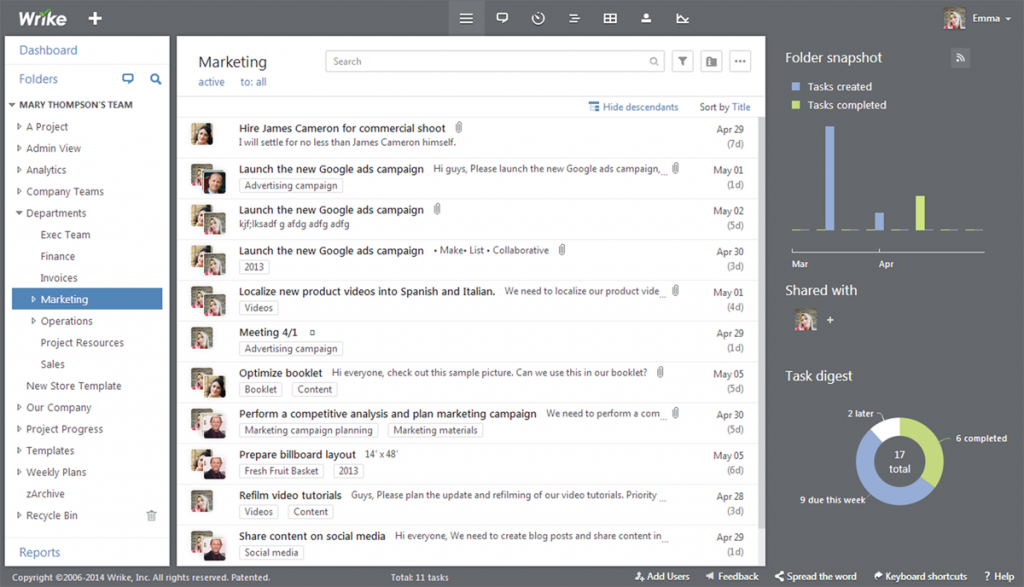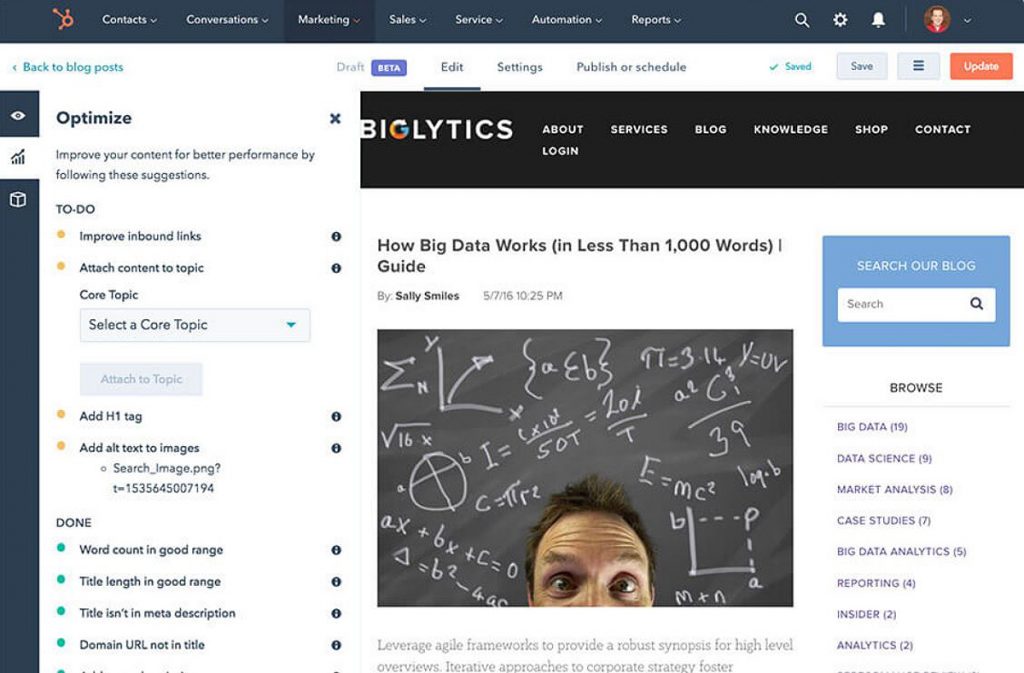Do you know that a bad product with great marketing is more likely to succeed than a good product with bad marketing? Yes, you read it right. This is because an effective marketing strategy can be a powerful game-changer.
And this proven capability is further enhanced if you have an excellent product with a very good marketing campaign. In fact, that’s the very simple, sensible strategy that many of today’s most valuable brands have been using to succeed in today’s highly competitive marketplace.
This is why many believe that aside from irresistible lifetime software deals, marketing is the lifeblood that drives their growth or slump.
In technical terms, marketing covers quite a broad range of activities that many tend to confuse it with PR and advertising. Yes, these things are part of a marketing strategy, along with other activities like promotional campaigns and CRM.
And in this digital business environment, these business strategies are best done using the most fitting digital marketing and technological tool to get the job done: marketing software.
What Is Marketing Software?
Marketing software is a technology-based solution that helps businesses perform their marketing activities and related business processes. This type of software generally provides a suite of tools that help in the more effective implementation of ad campaigns. It can also assist those using the best text message marketing software tools to better connect to target audiences and successfully convert prospects into leads and potential sales. And once that happens, to get them to stay as customers for long.
Businesses of any size or industry can benefit from the immense advantages that marketing software tools offer. Aside from helping them maximize the use of company resources, these tools also automate cumbersome tasks that result in higher productivity and time savings. Moreover, marketing platforms have been proven to be crucial in helping businesses expand their market reach and enable them to focus on other important concerns.
List of Best Marketing Software
There are thousands of marketing solutions in the market today, and most of them have been proven to be very helpful to marketers. Here are some of the top marketing platforms:
- HubSpot Marketing. This popular marketing platform is a top choice for content marketing and is a proven solution for helping boost website traffic and enhance online presence. HubSpot is an industry leader in email marketing, social media, and SEO so it follows that this solution offers great options for these marketing strategies. This vendor offers a free-forever subscription and three paid plans starting at $50 per month. You can also test-drive its premium features for free by availing its free trial offer.
- SharpSpring. A robust email marketing platform, SharpSpring is a software known for its extensive integration capabilities with commonly-used third-party as well as proprietary business systems. It is designed for small businesses that aim to make it big, packed with tools and features that marketers need to boost their productivity. This vendor offers 5 subscription plans, which starts at $450 per month.
- SEMrush. This is a popular marketing toolbox for businesses of any size. It provides enhanced features for PR, general marketing, PPC, SEO, and other promotional techniques. It also offers tools that empower marketers to more effectively address the fast-changing market environment, especially for social media. Prices start at $99.95 per month.
- Wrike for Marketing. This software is made for marketing teams wanting to boost their productivity and simplify their workflows. This comprehensive marketing solution provides marketers innovative tools to support dynamic teams in their collaborative marketing activities. Wrike for Marketing facilitates every phase of the entire marketing management cycle, with a focus on getting things done better and faster. Rates start at $35.60 per user per month.
- Serpstat. It’s software for your SEO, PPC and content marketing requirements to grow traffic. Serpstat includes features for backlink analysis, SERP historical data and keyword research. It also helps you do a site audit and conduct competitor research for a firmer SERP foothold.
- Textedly. Textedly is an easy-to-use, flexible, and powerful text messaging marketing solution. Designed for today’s mobile marketers and customers, Textedly helps businesses quickly send and receive messages. By capitalizing on the power of SMS-based ads and marketing tactics, business users can instantly connect with their customers who usually have their mobile phones on them. Textedly offers a free starter plan, while paid plans start at $20 a month.
- Keap. This all-in-one marketing and client management solution is designed to help businesses better monitor and nurture prospects and current clients using a centralized location. It offers tools like marketing automation, client scheduling, SMS marketing, email marketing, and a client database. Rates start at $79 a month.
- Integrate. This an enterprise marketing hub for managing and keeping close track of demand generation initiatives. Integrate enables businesses to use a robust demand engine to drive marketing efficiency. Data derived from every demand channel will be optimized to help improve better outcomes. This is a quote-based platform.
- Moz. This marketing and SEO solution is designed to help businesses achieve better search result visibility, rankings, and traffic. Key features include Keyword Explorer, rank tracking, Site Crawl, on-page optimization, and link research. Premium plans start at $99 per month.
- Mailchimp. This easy-to-use solution simplifies most marketing tasks and activities to allow businesses to focus more on growing their operations. Key features include event-based automation series, custom domains, audience insights, behavioral targeting, and custom templates. Its entry-level (Essentials) plan starts at $9.99 a month.
- Google Marketing Platform. This is an integrated marketing and analytics solution for better campaigns and improved outcomes. It offers a wide range of free features to achieve optimized marketing, including intuitive testing, site analytics, surveys, and data studio. It offers quote-based pricing and targets large enterprises.
- Klaviyo. This is a growth marketing solution designed for web-based companies. It helps online marketers optimize how they organize, grasp, and act upon customer data. A pay-per-use solution, Klaviyo rates depend on the actual number of email contacts and SMS messages used.
- AltexSoft. Designed for digital agencies and large enterprise teams, AltexSoft Marketing Solutions offers customized technology-powered tools and features to level up any marketing program. It enables marketers to boost their efficiency through data-driven solutions like experience design, analytics, and automation. This is a quote-based solution.
- ActiveCampaign. ActiveCampaign gives you the email marketing, marketing automation, and CRM tools you need to create great customer experiences. Its core features focus on helping marketers boost customer and brand awareness, enhance lead conversion, and improve customer support. Paid plans start at $15 per month.
- SE Ranking. This advanced digital marketing solution comes in handy for search optimization and attracting more traffic from Google. SE Ranking provides enhanced features for tracking organic positions, selecting keywords, SEO/PPC competitor research, website audit, and backlink analysis. It empowers marketers to develop SEO and marketing strategies, automate every search engine marketing task, and monitor the fast-changing market environment. Prices start at $39 per month. You can also test-drive its premium features during a 14-day free trial.
- Drip. This data-driven solution uses marketing, CRM, and ecommerce to create personalized experiences, relevant engagement, and win consumer loyalty for the long term. Key features include behavior-based automation, deep segmentation, and automatic revenue attribution. Paid plans start at $49 a month.
- Clearout. This solution offers the option to automate the process of email list building and email validation. Email Finder is one of powerful tools to find pre-verified B2B prospects on any domain. You can expand your reach and engage with the prospects by discovering their email addresses. It also provides assured results backed with a confidence score to build a strong customer database. It also offers accurate email verification service to maintain your email list hygiene. Clearout provides free trial and 100 free credits to test the services while the minimum plan starts from $21 for 3000 credits.
- Atlas Internet Marketing. This online marketing and CRM solution in one is designed to simplify core customer engagement activities. It helps marketers achieve significant cost savings while boosting sales outcomes and profits. Altas Internet Marketing is quote-based.
- Taximail. It allows you to grow your business with email marketing automation for marketing and transactional emails. The solution has everything you need from sending email marketing and SMS Marketing campaigns in a single platform. It is easy to use and provides high-speed email blasting features.

SharpSpring’s mobile app helps marketers to easily access marketing leads and sales contacts anytime, anywhere.
Types of Marketing Software
Marketing software is the main platform in its category. It is also an umbrella software application spanning various types of related applications that provide more specialized marketing functions. Some of these include:
Marketing automation software
This type of marketing application mainly to automate most marketing tasks. It helps enhance efficiency and productivity as well as reduce manual errors and operational costs.
Examples: HubSpot Marketing, EngageBay, Freshmarketer, ActiveTrail, ContactPigeon.
Email marketing software
This solution is used by marketers to simplify and hasten their email marketing campaigns and related tasks. Email marketing is indispensable for harnessing the power of this mature promotional channel, especially in reaching out to multiple target audiences.
Aside from tools, one platform that can complement Email marketing tools is via ‘subscronomics‘ or a subscription business model that aims to expand business reach and audience.
Examples: vCita, Wix ShoutOut, Marketo, ActiveCampaign, iContact Pro.
Content marketing software
This marketing platform is designed to boost the outcomes of various content marketing methods like video ads, blogging, white papers, infographics, etc. Whatever method is used, this solution helps make any form of marketing content produce efficient outcomes, including an increase in site visitors, better brand awareness, and improved product/service market performance.
Examples: monday.com, Wrike, Beamer, BrightInfo, Optimizely, Clipchamp.
Social media management software
This is used by marketers to engage prospective clients and current customers on social media. This platform can effectively monitor outbound and inbound brand mentions as well as track the efficiency of social marketing strategies.
Examples: Zoho Social, Facebook Pages Manager, Hootsuite, TweetDeck, Sprout Social.
Mobile marketing software
Marketers use this platform to deliver engaging marketing content to promote their products and services via smartphones and other mobile gadgets. It also takes advantage of the broad reach and proven efficiency of SMS.
Examples: SharpSpring, Textedly, Avochato, PushEngage, Adobe Marketing Cloud.
Search marketing software
This solution is used for enhancing the search engine results of business websites without the need to pay for better placement. Search marketing solutions offer various organic search marketing tools like backlink tracking, trend analysis, and keyword analysis to help improve the search results of websites.
Examples: SEMrush, SE Ranking, Moz, UpCity, Yoast.
Affiliate marketing
This is used for implementing and rewarding various performance-based campaigns of marketing affiliates. It automates the execution of ongoing affiliate marketing programs, making these cumbersome tasks easier, more efficient, and done in real-time.
Examples: Post Affiliate Pro, Tipalti, ShareASale, TUNE, ClickBank.

HubSpot Marketing’s dashboard makes it easy to view marketing targets and compare leads at various stages.
Top Marketing Software Features
Marketing software works mainly to make marketers more productive and help them easily finish their jobs at a faster pace. As customer preferences and behavior continue to evolve, businesses must be able to keep pace with these changes. This is why vendors constantly innovate to ensure that marketing technologies remain relevant and effective. Here are some of its major features:
Email Marketing. This marketing solution removes the repetitive, tedious processes of manually sorting and sending emails. Aside from enabling marketers to focus more on creating more engaging marketing content, email marketing software offers a host of capabilities. These include better email management, customized categorization of leads, reporting and analytics, etc.
Social Media Automation. The power of social media is massive. But without the necessary tools to harness this vast business resource, it will be difficult and even futile to market in these giant network sites. Here is where social media automation marketing software comes in. Not only does it simplify understanding and interacting with target audiences, but it also streamlines the process of examining and knowing what and when to post the correct social content.
Campaign Management. Marketing software can simplify even the most intricate marketing campaigns. This tool’s automation and integration help marketers easily organize, monitor, and evaluate the status of marketing campaigns.
Analytics. Nowadays, business decisions—like what ads to create and deploy—should be data-driven to enable the best results in this highly competitive market environment. This is why most marketing platforms typically offer reporting and analytics functions to ensure marketing strategies are relevant and cost-effective.
Lead Management. Marketing software can boost promotional campaigns and enhance sales efficiency using its robust lead management features. By removing the need to manually manage leads, this solution empowers marketers to closely track promising leads and better nurture high-potential customers.
Real-Time Alerts. Fast decision and action are critical aspects of converting leads into actual sales deals. Marketing software provides notifications in real-time to ensure marketers can engage leads faster as well as quickly connect with current customers when needed.

Wrike for Marketing simplifies campaign management by using tools that harness the efficiencies of marketing team collaboration.
Key Benefits
Because of the helpful features and indispensable tools they offer, marketing software provides numerous benefits. However, businesses and professional marketers can only experience such advantages if they’re using the right app for the correct purpose. Once you’re sure you’ve selected the correct marketing software, here are some of its top benefits that you’ll enjoy:
Cost-effective. No matter how big or small your business is, you’ll definitely experience the cost-effectiveness of marketing software. From helping optimize the use of company resources to boosting lead conversion rates, this platform will allow marketers to maximize every available asset. It will also help save money since the efficiency and productivity of your marketing team will be doubled or tripled, without the need to hire more staff.
Time savings. Another major benefit that marketing software brings is time reduction in completing tasks and reaching targets. This platform also helps in saving time previously devoted to performing cumbersome, repetitive tasks. As such, your marketing team can allocate more of their time and energy to other more critical activities, like nurturing leads and enhancing customer experience.
Engage with numerous clients. You can utilize this software to easily perform complicated, simultaneous campaigns and customer engagements. Things that were previously impossible when done manually have become possible and even more efficient because of the vast efficiencies that this technology tool brings.
Achieve Consistency. Before, it’s easy to succeed once in a while in marketing. However, repeating such positive market results or sustaining a successful marketing run is never a simple feat to repeat. But thanks to marketing software, it is now possible to gain consistency in marketing campaigns. With advanced technologies like AI and machine learning, simulating and reproducing marketing programs are easier to implement, with sustained or better results.
Reports and analytics. In this digital world, everything runs on data and information. With marketing software, knowing and predicting the preferences and behavior of your target consumers is achievable. And with this capability, it will be easier for marketers to create and execute more efficient marketing strategies since these are data-driven plans.
Latest Trends
Ever since digital ads overtook traditional ads in 2018, more and more marketers are shifting to marketing technologies as their main marketing channel. This is why every marketer worldwide is all eyes on the current and upcoming marketing technology trends to keep abreast of the latest innovations. Some of these are as follows:
Artificial intelligence and machine learning. Because knowledge is key to success in today’s information age, businesses are increasingly turning to data-driven strategies to get ahead of their competition. AI and ML are becoming indispensable in better addressing the shifting needs of today’s consumers. These cutting-edge technologies are best used for predicting people’s behavior, help design personalized CX, and can be integrated into websites, and apps.
Augmented and Virtual Realities. Augmented reality uses a 3D image or video into a real-world situation, while virtual reality is a computer-generated reality that can be viewed using a head-mounted gadget. Customers have already embraced ads that use AR and VR and their reception is generally positive. Some of the best examples for this include the innovative Ikea and Pepsi ads.
Video. A growing favorite channel among marketers. The reason is actually simple. People would rather watch something than to read an article. Moreover, people’s average attention span is short. This is why concise videos that are rich in information and, at the same time, entertaining will continue to rule the advertising world.
Social Media. As social networks continue to dominate this world, marketers must never cease capitalizing on the power of social media. However, experts suggest the need to use social media content that is fleeting (ephemeral) and long-lasting (permanent). If the correct content is used for the correct audience at the right time, your content will be more effective.
Potential Issues
Marketing software will continue to be one of the most useful technology tools for businesses. However, despite its widespread use and its long existence across industries, problems continue to persist. While issues with using any type of software are inevitable, much more a mature technology like marketing software, it’s good practice to always watch out for these common issues:
Poor use of resources. Because marketing software can automate numerous daily tasks, marketers tend to rely too much on this technology. This, in turn, results in underutilization of company assets, especially employees. To address this, it’s best that affected employees are given new tasks. These include those that maximize their soft skills, such as problem-solving and other tasks that put their creativity into better use.
Process integration issues. Many of today’s marketing solutions do deliver in their promise to automate and customize most marketing tasks. However, not all these capabilities are instantly achieved or implemented. Likewise, it is still critical to make any integration or personalization systematically to ensure that the software solution is optimized and the resulting processes are seamless.
Security breach. Like any form of technology, security problems are inevitable. From software design defects to vulnerability to attacks, marketing software should be programmed and used with the corresponding security protocols. Marketers should also observe the secure handling of confidential customer data to address this concern.

HubSpot Marketing helps marketers optimize their business resources, such as by providing ways to improve marketing content.
Factors to Consider when Buying Marketing Software
Choosing the most suitable marketing software for your business is never easy. Merely going with the best or the cheapest in the market is not only unreliable but could even be a waste of time and money. Besides, deploying the wrong software could even ruin your market efforts.
If you’re in search of a marketing solution to enhance the outcomes of your campaigns, here are some expert-selected factors to consider:
- Customer evidence. Refer to the experiences of actual users to know firsthand information on software usage. Read unbiased expert and customer reviews for better guidance.
- Ease of use. The software should primarily function as a solution, not to create problems. This is why user experience should be considered as a priority.
- Price. The cost should not only be confined during the time when you’re buying software but in the bigger picture. If one is comparatively expensive but can help you achieve better revenues, choose that software.
- Integrations. Don’t buy new software that doesn’t work well with the business tools that you already use. Choose those with extensive integration to allow increased productivity.
- The number of features. Look for marketing solutions that offer the features and tools that you actually need. It’s good practice to connect how software features can help you reach your business targets.
- Customer support. Select vendors that offer integrated 24/7 support. Great customer service should make you feel that they’re part of your team.
- Reliability and stability. The software you’ll use must be one that you can depend on to help you perform your marketing tasks. It should likewise be able to provide you the stability you need to sustain your positive market outcomes.
- Referral. It is said that great software products come from trustworthy vendors, so choose only from those that customer trust.
